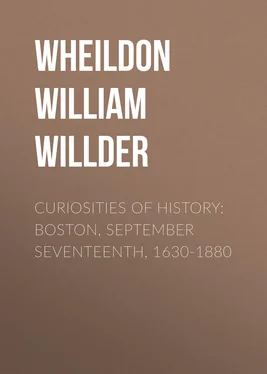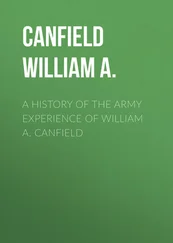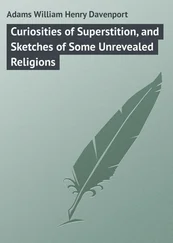William Wheildon - Curiosities of History - Boston, September Seventeenth, 1630-1880
Здесь есть возможность читать онлайн «William Wheildon - Curiosities of History - Boston, September Seventeenth, 1630-1880» — ознакомительный отрывок электронной книги совершенно бесплатно, а после прочтения отрывка купить полную версию. В некоторых случаях можно слушать аудио, скачать через торрент в формате fb2 и присутствует краткое содержание. Жанр: Путешествия и география, История, foreign_edu, foreign_antique, foreign_prose, на английском языке. Описание произведения, (предисловие) а так же отзывы посетителей доступны на портале библиотеки ЛибКат.
- Название:Curiosities of History: Boston, September Seventeenth, 1630-1880
- Автор:
- Жанр:
- Год:неизвестен
- ISBN:нет данных
- Рейтинг книги:4 / 5. Голосов: 1
-
Избранное:Добавить в избранное
- Отзывы:
-
Ваша оценка:
- 80
- 1
- 2
- 3
- 4
- 5
Curiosities of History: Boston, September Seventeenth, 1630-1880: краткое содержание, описание и аннотация
Предлагаем к чтению аннотацию, описание, краткое содержание или предисловие (зависит от того, что написал сам автор книги «Curiosities of History: Boston, September Seventeenth, 1630-1880»). Если вы не нашли необходимую информацию о книге — напишите в комментариях, мы постараемся отыскать её.
Curiosities of History: Boston, September Seventeenth, 1630-1880 — читать онлайн ознакомительный отрывок
Ниже представлен текст книги, разбитый по страницам. Система сохранения места последней прочитанной страницы, позволяет с удобством читать онлайн бесплатно книгу «Curiosities of History: Boston, September Seventeenth, 1630-1880», без необходимости каждый раз заново искать на чём Вы остановились. Поставьте закладку, и сможете в любой момент перейти на страницу, на которой закончили чтение.
Интервал:
Закладка:
Thus we have seen Boston as it was in 1630 and subsequent years,—originally one of three prominent peninsulas on the coast of New England, known by the Indians as Shawmut, Mishawam, and Mattapan, and afterwards, by the settlers, as Boston, Charlestown, and Dorchester (now South Boston). Each of these was connected with the mainland by a narrow neck of its own, and now all three, with the addition of Roxbury, West Roxbury, Brighton, and Noddle’s Island (East Boston), are included in the present metropolis, while Muddy Brook (Brookline) and Winnisimmet (Chelsea), which were originally attached to Boston, are not included within her present limits. The growth and expansion of the town, we judge, are unparalleled, in some respects, by any other city in the world, with a character of her own and a position in the history of the country of which she may well be proud.
II.
THE PUBLIC FERRIES
The first settlers of Charlestown and Boston of course saw an immediate necessity for the establishment of ferries on both sides of them; so that, after considerable numbers had arrived, this became imperative, especially that across Charles River,—“the great ferry,” as it was afterwards called. This may be called the first public enterprise undertaken by the colonists. There was, no doubt, from the first, means of crossing the river furnished by individuals before any public action had taken place, just as was done by Samuel Maverick at Noddle’s Island, who was disposed and prepared to accommodate everybody that came along. Measures were taken for the establishment of the Charlestown Ferry soon after the arrival of Gov. Winthrop’s party at Charlestown. At a meeting of the Court of Assistants, holden at Boston, Nov. 19, 1630,—present the governor, deputy-governor, Sir Richard Saltonstall, Mr. Ludlowe, Capt. Endicott, Mr. Coddington, Mr. Pinchon, and Mr. Bradstreet,—“It is further ordered, That whosoever shall first give in his name to Mr. Governor that he will undertake to set up a ferry betwixt Boston and Charlestown, and shall begin the same at such time as Mr. Governor shall appoint, shall have 1 d. for every person and 1 d. for every 100 weight of goods he shall transport.”
The ferry was no doubt undertaken at this time by Edward Converse; and, probably as it did not then pay very well, in June 14, 1631, an order was passed, “That Edward Converse, who had undertaken to set up a ferry between Boston and Charlestown, be allowed 2 d. for every single person, and 1 d. apiece, if there be two or more.”
The lease to Mr. Converse, in 1631, was renewed Nov. 9, 1636, in form as follows: “The Governor and treasurer, by order of the general court, did demise to Edward Converse the ferry between Boston and Charlestown, to have the sole transporting of passengers and cattle from one side to the other, for three years from the first day of the next month, for the yearly rent of forty pounds to be paid quarterly to the treasurer: Provided, that he see it be well attended and furnished with sufficient boats; and that so soon as may be in the next spring he set up a convenient house on Boston side, and keep a boat there as need shall require. And he is allowed to take his wonted fees, viz., 2 d. for a single person, and pence apiece, if there be more than one, as well on lecture days as at other times; and for every horse and cow with the man which goeth with them 6 d. , and for a goat 1 d. , and a swine 2 d. And if any shall desire to pass before it be light in the morning, or after it is dark in the evening, he may take recompence answerable to the season and his pains and hazard, so as it be not excessive.”
The ferry was a great accommodation, of course, and could not be dispensed with. Johnson mentions it quite early in his “Wonder-Working Providence.” In speaking of Charlestown, the “neighbor of Boston, being in the same fashion, with her bare neck,” he says “there is kept a ferry-boat to convey passengers over Charles River, which, between the two towns, is a quarter of a mile over, being a very deep channel.” But at times, no doubt, the ferry proved troublesome and annoying. So that in the month of October, 1632, Mr. Winthrop records that “about a fortnight before this, those of Charlestown, who had formerly been joined to Boston congregation, now, in regard of the difficulty of passage in the winter, and having opportunity of a pastor, one Mr. [Edward] James, who came over at this time, were dismissed from the congregation of Boston.” This, it was said, was after a rather boisterous summer on the bay and harbor.
At a General Court, holden at Boston, the 18th of May, 1631, there were present Mr. Winthrop, governor; Mr. Dudley, deputy-governor; Mr. Ludlowe, Capt. Endicott, Mr. Nowell, Mr. Pinchon, Mr. Bradford, assistants (at which the governor and lieutenant-governor were chosen),—“Thomas Willins [Drake gives the name as Williams] hath undertook to sett up a ferry between Winnisimmet and Charlestown, for which he is to have after three pence a person and from Winnisimmet to Boston four pence a person.” Mr. Savage, in a note to Winthrop’s journal, speaking of Samuel Maverick at Noddle’s Island, says, “Winisemet Ferry, both to Charlestown and Boston, was also granted to him forever.” He certainly did conduct a ferry on one or both these routes for a time.
Jan. 23, 1635.—“Thomas Marshall was chosen by general consent for ye keeping of a ferry from Milne Point [Copps’ Hill] vnto Charlestowne, and to Wynnyseemitt, and to take for his ferrying vnto Charlestowne, as ye ferryman there hath, and vnto Wynnyseemitt for a single psn six pence; and for every one above ye number of two, two pence apiece.” It is not probable that this ferry was continued for many years.
In December, 1637, Edward Bendall was “to keepe a sufficient ferryboate to carry to Noddle’s Island and to the shippes ryding before the Town: taking for a single person ij d. and for two 3 d. ”
In 1640, the Charlestown Ferry was granted to Harvard College, to the support of which the town had been annually contributing, and had received from the ferry fifty pounds for the year previous, 1639. This grant was continued, and, for nearly one hundred and fifty years before the bridge was built, it was a source of very handsome income to the institution. In 1644, it appears by the records of the town, William Bridge was appointed to keep the ferry in place of Mr. Converse, and “to have a penny a person for each that goes over, except they agree with him by the year, and two pence a person for each that goes over unseasonably.” When the bridge was built in 1785, the gratuity to the college was continued by the terms of the Act authorizing it; and the sum of two hundred pounds per year was paid to it in commutation of its claim to the ferry.
Johnson, in his “Wonder-Working Providence,” describes Boston as surrounded by the brinish floods, and as having, on the north-west and north-east, “two constant Faires, kept for traffique thereunto.” A ferry to Cambridge is spoken of in 1652; and in the fall of that year Mr. Cotton took cold in crossing it, and died soon after.
In 1648, “the ferrymen, Francis Hudson and James Heyden, state in a petition to the General Court, that the ferry never was less productive: that contrary to law disorderly passengers would press into the boats, and on leaving refuse to pay their fare; that some pleaded they had nothing to pay, and others that they were in the country’s service. And they further state, that the payment generally tendered was ‘usually in such refuse, unwrought, broken, unstringed and unmerchantable peag’ (wampum), at six a penny, that they lost two pence a shilling, being forced to take peag at six a penny and pay it at seven. They petition that if the Court intend ‘all soldiers with their horses and military furniture be fare-free,’ that they might be paid for it by the colony: that strangers, not able to pay, may be ordered to give in their names: that the ‘peag hereafter to us paid may be so suitably in known parcels handsomely stringed, and their value assigned, that it may henceforth be a general, current and more agreeable pay.’”
Читать дальшеИнтервал:
Закладка:
Похожие книги на «Curiosities of History: Boston, September Seventeenth, 1630-1880»
Представляем Вашему вниманию похожие книги на «Curiosities of History: Boston, September Seventeenth, 1630-1880» списком для выбора. Мы отобрали схожую по названию и смыслу литературу в надежде предоставить читателям больше вариантов отыскать новые, интересные, ещё непрочитанные произведения.
Обсуждение, отзывы о книге «Curiosities of History: Boston, September Seventeenth, 1630-1880» и просто собственные мнения читателей. Оставьте ваши комментарии, напишите, что Вы думаете о произведении, его смысле или главных героях. Укажите что конкретно понравилось, а что нет, и почему Вы так считаете.












